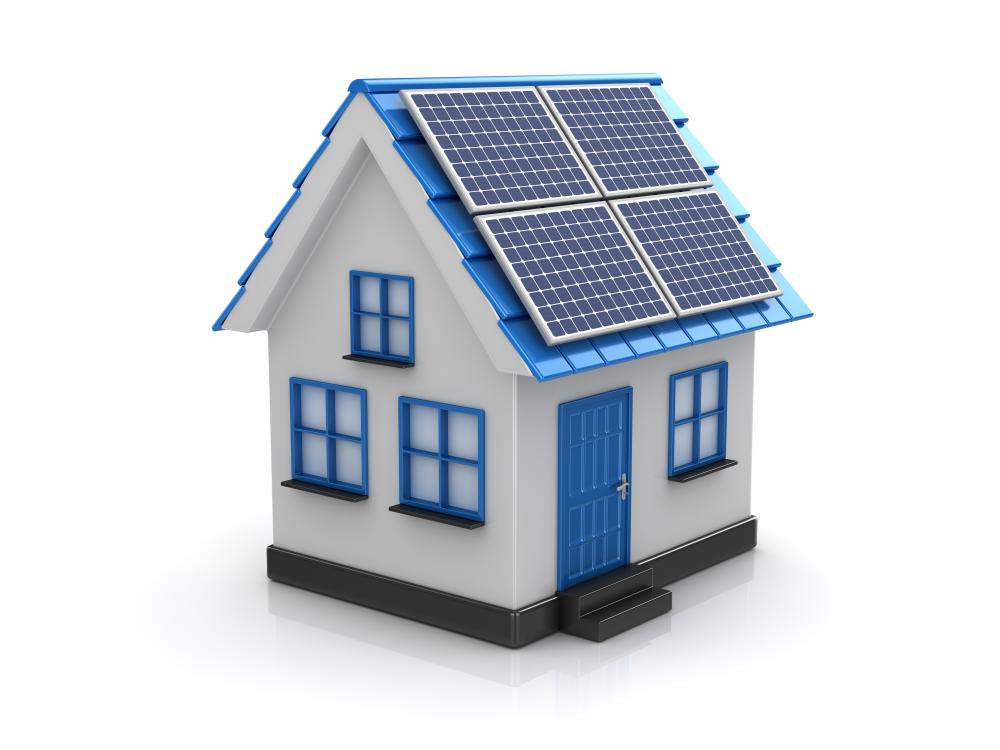Home Solar Panels

Introduction to Home Solar Panels
At Willdurness LLC, we're passionate about the potential that home solar panels have in transforming homes into modern, efficient, and sustainable living spaces. Our experience in integrating renewable energy solutions has shown us the profound impact that solar technology can have on individual homes and communities at large. By opting for solar, homeowners not only secure a future of decreased utility bills but also take a step toward reducing their carbon footprint.
Why Choose Solar?
The sun showers the Earth with abundant energy every day, far exceeding the amount of power consumed annually by humans. Harnessing this energy through home solar panels offers an eco-friendly and sustainable source of power. Beyond the environmental benefits, solar panels significantly reduce electricity bills, enhance property value, and provide energy independence. Deciding to go solar is not just a financial decision but also a commitment to a greener future.
Understanding the Basics
How Do Solar Panels Work?Solar panels convert sunlight into electricity using photovoltaic cells, providing a clean and renewable source of energy for your home. This process involves the conversion of light photons into electrical power, which can then be used to run household appliances and lighting. It's a fascinating technology that capitalizes on a limitless natural resource--the sun.
Components of a Solar SystemA typical home solar system includes not only the solar panels themselves but also an inverter to convert the generated DC electricity into AC, mounting equipment, and a monitoring system to track energy production. Each component plays a vital role in ensuring the efficiency and reliability of the overall system.
Benefits of Home Solar Panels
Opting for home solar panels comes with a plethora of advantages. Firstly, solar power can significantly reduce your electric bill, as you'll be generating most of your own energy. Additionally, solar panels are known to increase the resale value of your home. There's also the aspect of energy independence; solar power can provide a buffer against rising utility prices. Moreover, the environmental impact is considerable, with solar energy significantly reducing greenhouse gas emissions associated with conventional electricity production.
What to Consider
Suitability of Your HomeBefore diving into solar, it's crucial to determine whether your home is suitable. Factors such as the orientation and incline of your roof, as well as potential shading, can influence the efficiency of solar panels. A professional assessment can help you understand your home's solar potential.
Cost and FinancingThe initial investment for home solar panels can be substantial. However, various financing options, including loans, leases, and power purchase agreements, can make solar more accessible. Additionally, government incentives and rebates can significantly reduce the net cost of going solar.
Maintenance and LongevityHome solar panels are known for their durability and require minimal maintenance. Regular monitoring and occasional cleaning are generally all that's needed to keep them operating at peak efficiency. With an average lifespan of 25-30 years, solar panels offer a long-term solution for reducing your energy bills and carbon footprint.
Making the Switch
Transitioning to solar energy is a significant step towards sustainable living. At Willdurness LLC, we guide our clients through every step of the process, from initial consultation to installation and maintenance. Our goal is to make the transition as smooth and beneficial as possible, ensuring that you're well-informed and comfortable with your decision to go solar.
Personal Experience
One of our most memorable projects involved retrofitting a historic home with modern solar panels. The challenge was to preserve the home's aesthetic while significantly improving its energy efficiency. The success of this project not only demonstrated the versatility of solar technology but also its potential to enhance even the most traditional homes.
Final Thoughts
At Willdurness LLC, our commitment to sustainability drives us to offer home solar panels as a key service. We've witnessed firsthand the benefits that solar energy can bring to our clients, from financial savings to environmental conservation. If you're considering making the switch, we're here to help, providing expert advice and quality installation services. Let's work together to power your home with clean, renewable energy.
Contact Information
For more information on our solar panel distribution and available rental properties, please visit our affiliate sites or contact us directly at 850.748.2560. Together, we can make a difference for your home and the planet.

How many solar panels are needed to power a house?
When considering the switch to solar energy, one of the first questions we're often asked is about the number of solar panels required to power a home. The answer isn't one-size-fits-all, as it significantly depends on your household's energy consumption, the efficiency of the solar panels you choose, and the amount of sunlight your location receives. On average, a typical American home might need between 20 to 25 panels to cover 100% of its electricity usage, based on panels with a standard efficiency. Remember, this number could vary. A more energy-efficient home in sunny Arizona might need fewer panels than a less efficient one in the cloudier Pacific Northwest.
Here's a tip: assess your past utility bills to determine your average energy usage and consider an energy audit to find ways to improve your home's efficiency before installation. This initial step could reduce the number of panels you'll need, making solar more affordable.
Are solar panels on a house really worth it?
The short answer is yes; solar panels offer substantial benefits that outweigh the initial investment for most homeowners. Besides the obvious environmental perks of reducing your carbon footprint, solar panels can significantly cut down your electricity bills. Many homeowners report seeing a reduction in their monthly energy costs immediately after installation. Additionally, solar panels tend to increase the property value of your home.
From a financial perspective, the return on investment is attractive. The average solar panel system can pay for itself in about 7 to 8 years through savings on utility bills. Plus, with panels lasting 25 to 30 years, you can enjoy decades of savings. The key is to consider your specific situation--location, energy consumption, and available incentives--to determine the true worth for you.
How much is a solar system for a 2000 sq ft house?
The cost of installing solar panels on a 2000 sq ft house can vary widely, based on factors like your energy needs, the equipment you choose, and available tax credits or rebates. On average, homeowners might expect to spend anywhere from $15,000 to $40,000 for a system capable of completely powering such a home. This range can seem broad, but it's because of the variability in panel types, house energy efficiency, and installation complexities.
It's essential to get a personalized quote based on your home's specifics. Incentives such as the federal solar tax credit, which currently allows you to deduct 26% of the cost of installing a solar energy system from your federal taxes, can significantly reduce the overall cost. Plus, many states and utilities offer additional incentives that can further lower your out-of-pocket expenses.
Does California pay for solar panels?
California has been a pioneer in encouraging the adoption of solar energy through various incentives. While the state doesn't directly pay for solar panel installation, programs like the California Solar Initiative (CSI) have provided rebates that reduce solar system costs. Although the CSI program has concluded, California homeowners can still take advantage of the federal solar tax credit and local incentives such as net metering programs.
Net metering allows California residents to sell unused electricity generated by their solar panels back to the grid, earning credits that can reduce their utility bills even further. Additionally, specific cities and counties offer their own rebates and incentives, making solar more accessible statewide. It's worth researching the latest programs in your area to maximize your savings.
How does weather affect solar panel efficiency?
Many potential solar users worry about the impact of weather on solar panel efficiency. It's a common misconception that solar panels need hot, sunny weather to be effective. In reality, solar panels can still generate electricity on cloudy days, albeit at reduced efficiency. Moreover, solar panels actually operate more efficiently in cooler temperatures. High temperatures can reduce the panels' ability to convert sunlight into electricity, so a bright, chilly day could be ideal for solar generation.
Regions with frequent snowfall also benefit from solar panels, as the white snow can reflect light and help improve panel performance. Additionally, most modern solar panels are designed to shed snow reasonably quickly. The key takeaway is that while weather can influence solar panel efficiency, technological advancements and proper installation ensure that your system will still produce significant energy savings year-round.
How do I choose the right solar contractor?
Choosing a solar contractor is a crucial step in the solar installation process. It's important to select a reputable, experienced professional to ensure a smooth and efficient installation. Look for contractors who are licensed and certified, with a solid track record of successful installations. Ask for references and read reviews to understand their work quality and customer service.
Don't hesitate to ask potential contractors about their experience with homes similar to yours and request detailed quotes from several companies to compare prices and services. Remember, the cheapest option might not always be the best. Quality installation and reliable after-service support are paramount for maximizing the benefits of your solar system. Collaborating with reputable companies like Willdurness LLC, which focuses on quality and customer satisfaction, can provide peace of mind throughout the process.
Solar Resources
- Homeowner's Guide to Going Solar - U.S. Department of Energy: A comprehensive guide for homeowners interested in transitioning to solar energy, covering topics such as system types, costs, and financing options.
- Consumer Protection - Solar Energy Industries Association: Information on consumer rights, solar system warranties, and best practices when purchasing and installing solar panels.
- Solar Energy Financing Options - EnergySage: An overview of different financing methods available for solar energy projects, including loans, leases, and power purchase agreements.
- How Solar Energy Works - Union of Concerned Scientists: A detailed explanation of the science behind solar panels and how they convert sunlight into electricity for residential use.
